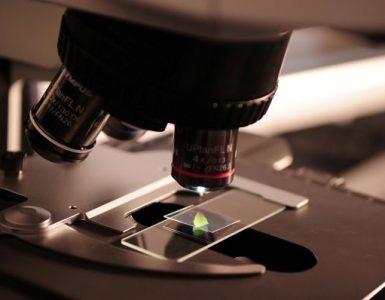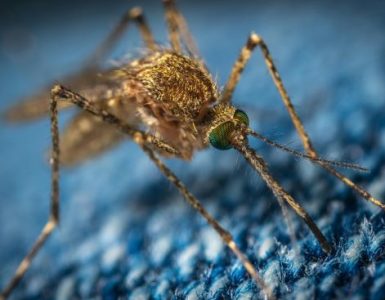Scientists have made a groundbreaking discovery, uncovering how plants prevent viruses from being passed to their offspring. This finding not only holds promise for developing healthier crops but may also contribute to reducing the transmission of diseases from mothers to their human children.
The agricultural challenge
Plant viruses pose a significant global threat, often spreading across borders through the seed trade. As a result, the transmission of diseases from parent plants to their progeny—referred to as vertical transmission—is a major concern for agriculture worldwide. Some viruses can remain dormant in seeds for years, making this issue particularly challenging. “Viruses can hide in seeds for years, making this one of the most important issues in agriculture,” said Shou-Wei Ding, distinguished professor at UC Riverside’s Department of Microbiology and Plant Pathology and corresponding author of a new paper published in Cell Host & Microbe.
Despite this risk, when a virus-infected mother plant produces 100 seeds, only 0 to 5% of the seedlings typically become infected. This phenomenon has perplexed scientists for over a century: how do mother plants prevent the widespread transmission of viruses to their offspring?
Cracking the code of immunity
A research team led by UC Riverside set out to unravel this mystery by identifying the immune pathway that blocks vertical virus transmission. They succeeded, providing new insights into the immune defense mechanisms of plants. The team’s strategy and their discovery are outlined in the recently published paper.
Their research focused on Arabidopsis, a small plant in the mustard family, which was inoculated with cucumber mosaic virus (CMV). Despite its innocuous name, CMV infects more than 1,000 plant species, causing yellowing, ring-shaped spots, and distinct patterns on leaves and fruits. By examining hundreds of Arabidopsis varieties, the researchers aimed to identify which genes contribute to viral resistance in both the mother plants and their progeny.
The RNA interference pathway
The study zeroed in on two key genes that are most active during the early stages of seed development. These genes play a critical role in the RNA interference (RNAi) pathway, an essential immune mechanism. In this pathway, genetic information is transcribed from DNA to RNA, and small interfering RNA (siRNA) is produced. These siRNA molecules are used to inhibit protein production, particularly proteins created by invading viruses.
“Many organisms produce siRNAs to control and inhibit viral infections,” Ding explained. “We believe that the ability of plants to prevent seed infections stems from the antiviral RNA interference pathway being active during seed development in mother plants.”
To test this theory, the team engineered mutant plants in which two key RNAi pathway genes—responsible for producing the enzymes dicer-like 2 and dicer-like 4—were deleted. Without these enzymes, the plants were unable to generate siRNAs, rendering their antiviral immune pathways inactive. While the mutant plants grew and produced seeds normally, once infected with cucumber mosaic virus, they exhibited severe symptoms and had a tenfold increase in virus transmission to their seeds, with up to 40% of seedlings becoming infected.
“We were really excited by this result,” Ding said. “This is the first time anyone has observed such a dramatic change in seed transmission when an immune pathway is disrupted.”
Implications for broader disease prevention
Although the non-mutant plants showed strong immune suppression, a small percentage of seeds still became infected with the virus. The researchers discovered that the virus itself expresses a protein that blocks the RNAi pathway in mother plants, explaining this limited transmission. The team is now exploring whether enhancing this immune pathway in seeds could further reduce transmission rates.
This discovery extends beyond plants, as the RNAi pathway is evolutionarily conserved across various organisms, including invertebrates, fungi, and mammals. As such, the findings could have profound implications for preventing diseases in animals and humans.
The researchers are particularly focused on the Zika virus, known for causing severe birth defects like microcephaly when transmitted from mothers to their offspring. “We know that Zika virus expresses several proteins that block the RNAi pathway,” said Ding. “It may be possible to prevent vertical transmission by inhibiting these proteins’ function with new drugs.”
In sum, this breakthrough not only has the potential to revolutionize agricultural practices by creating virus-resistant crops but also paves the way for future advancements in combating vertical transmission of viruses in humans, offering hope for reducing diseases like Zika in future generations. (Source: UC Riverside)
By Global Health Press (GHP)

















